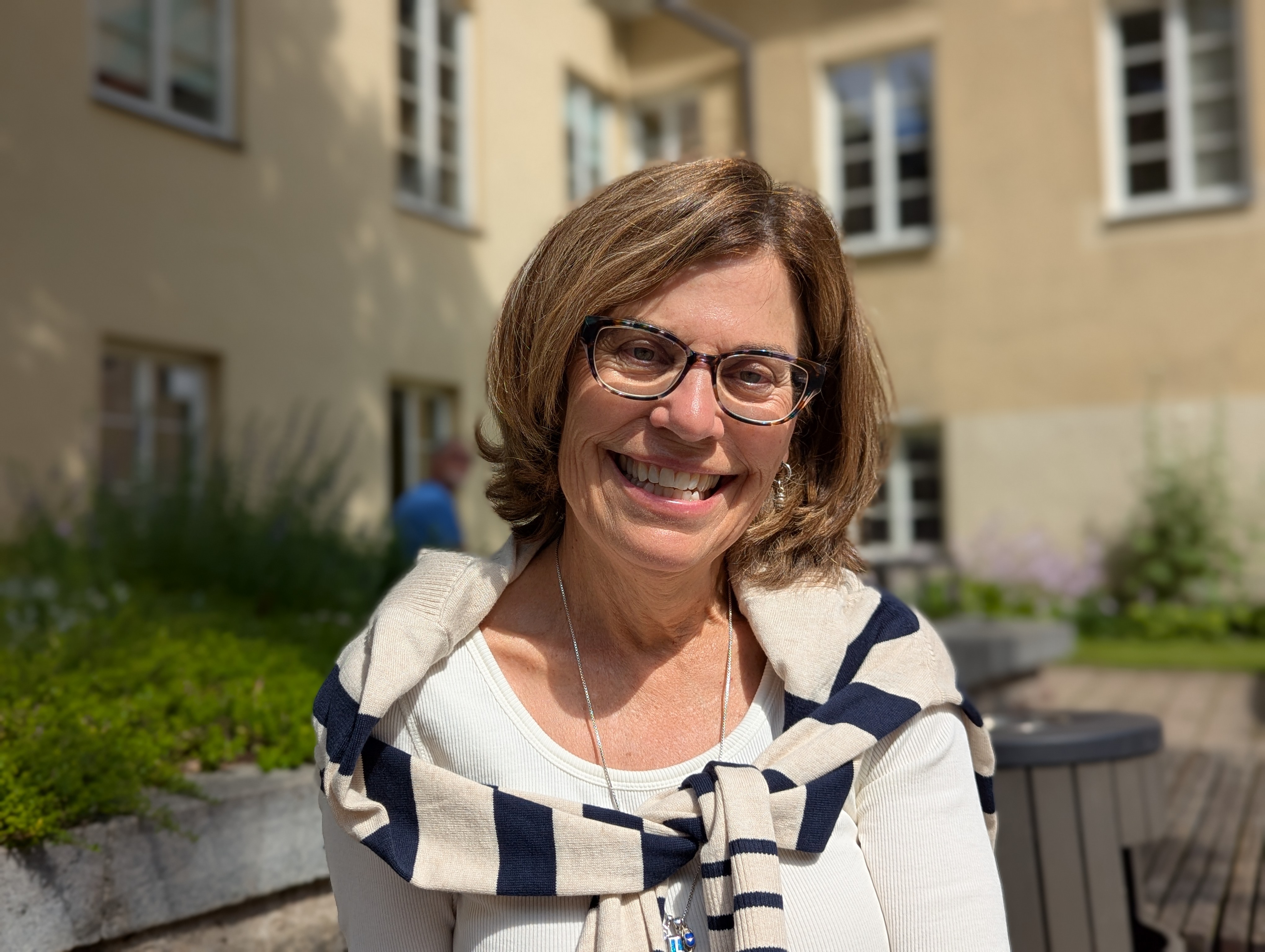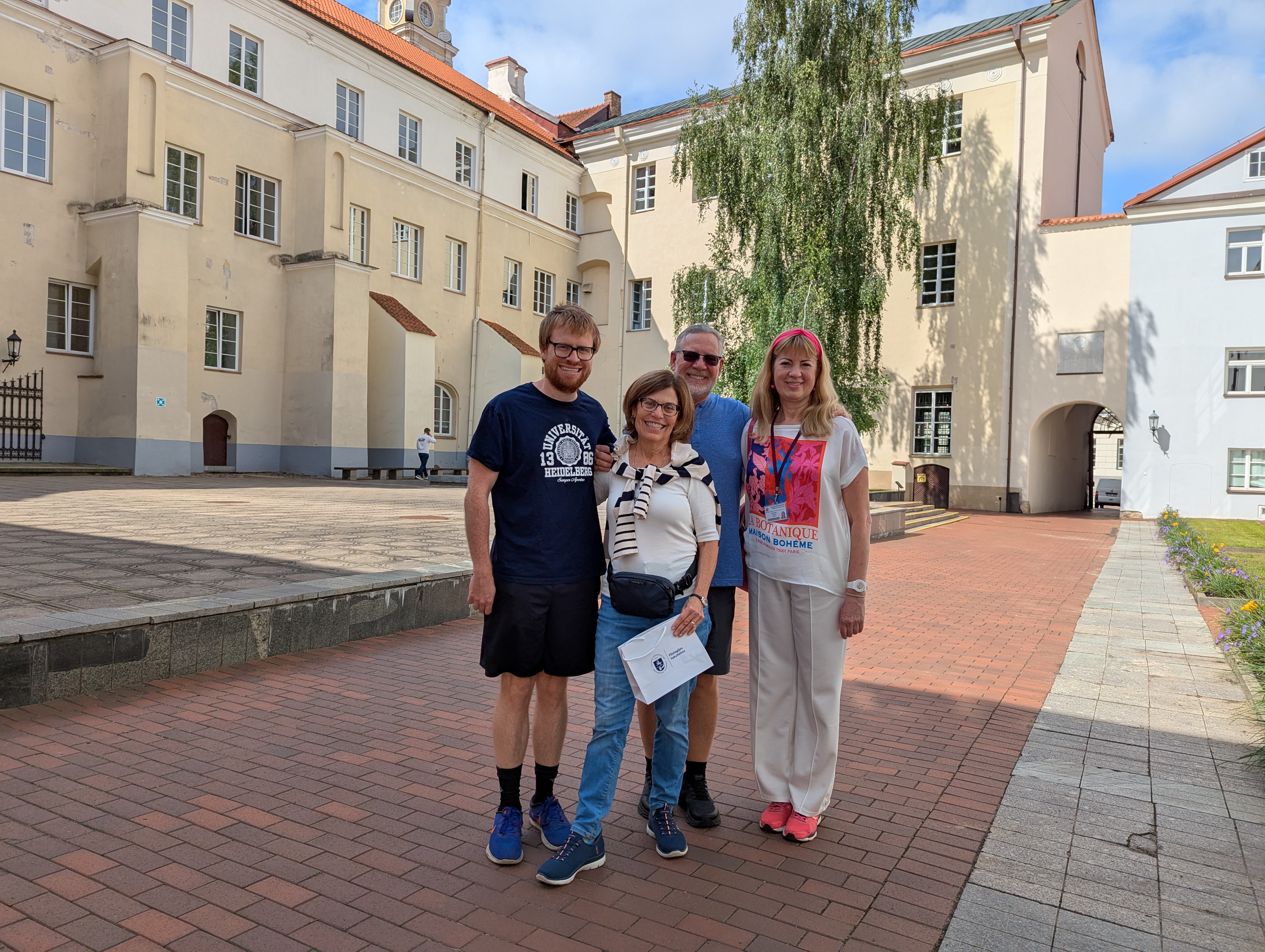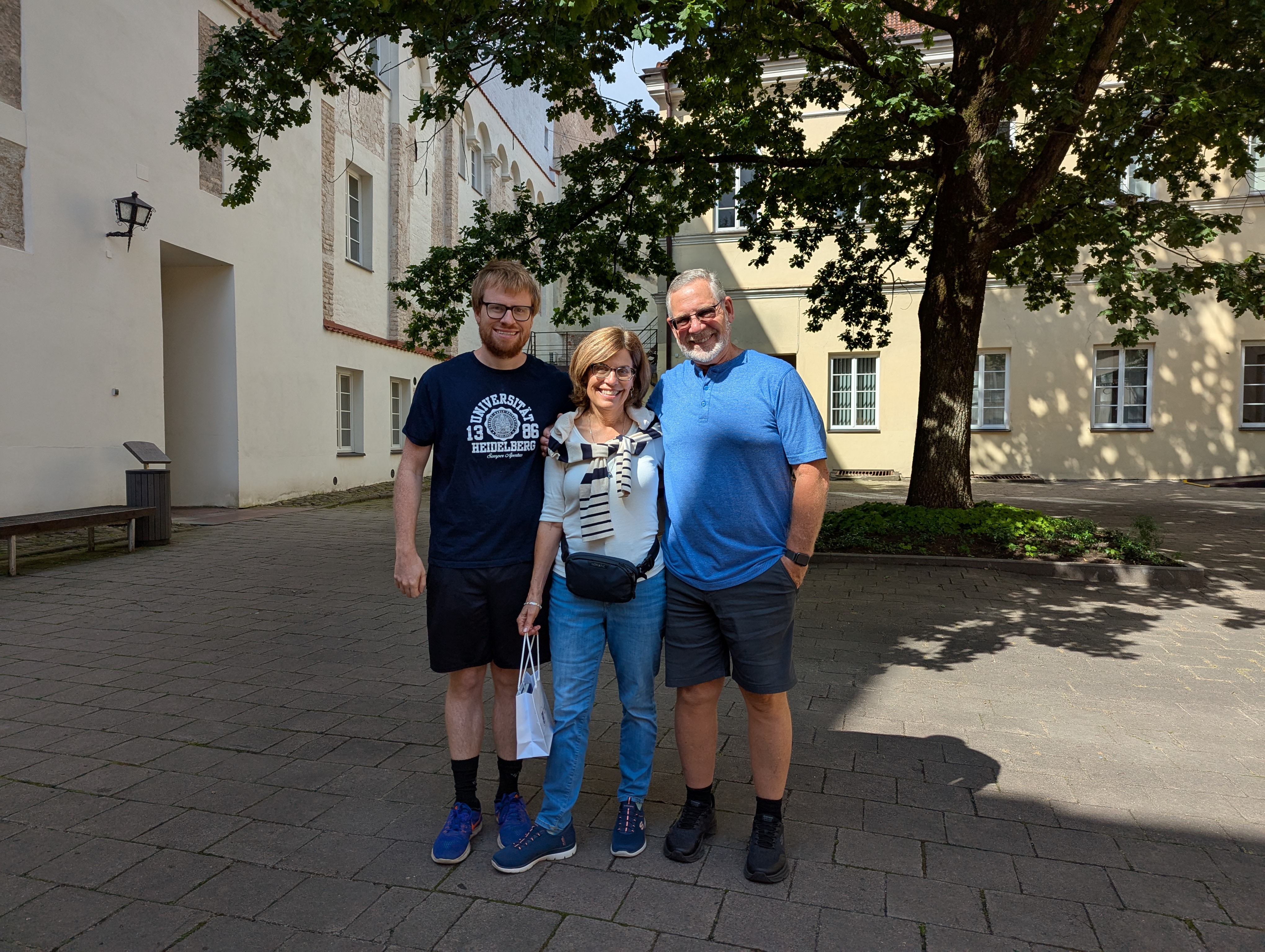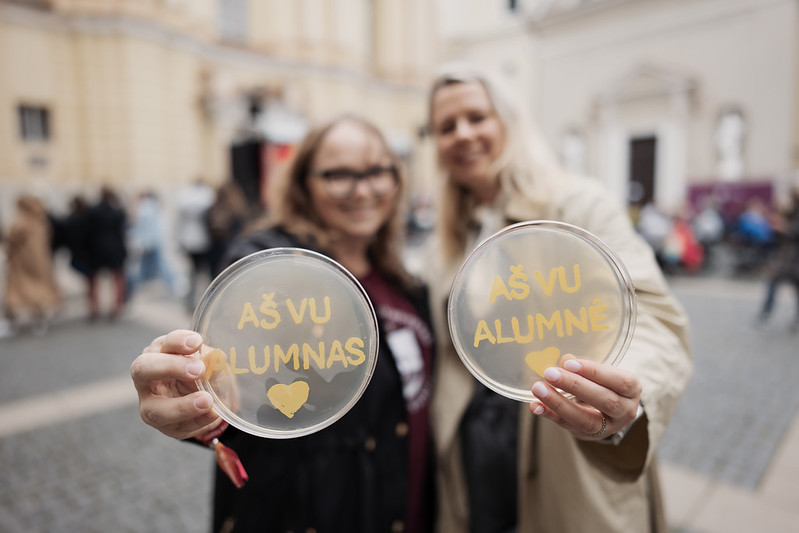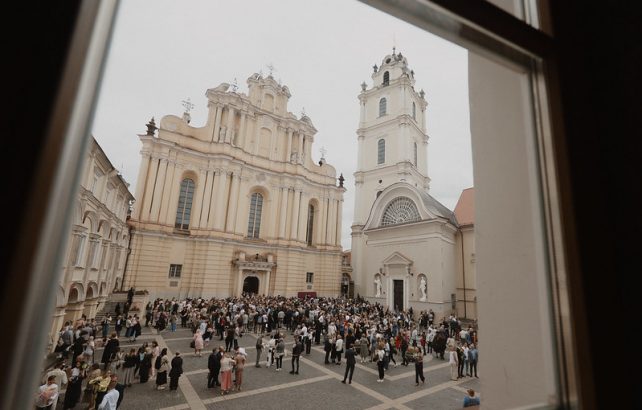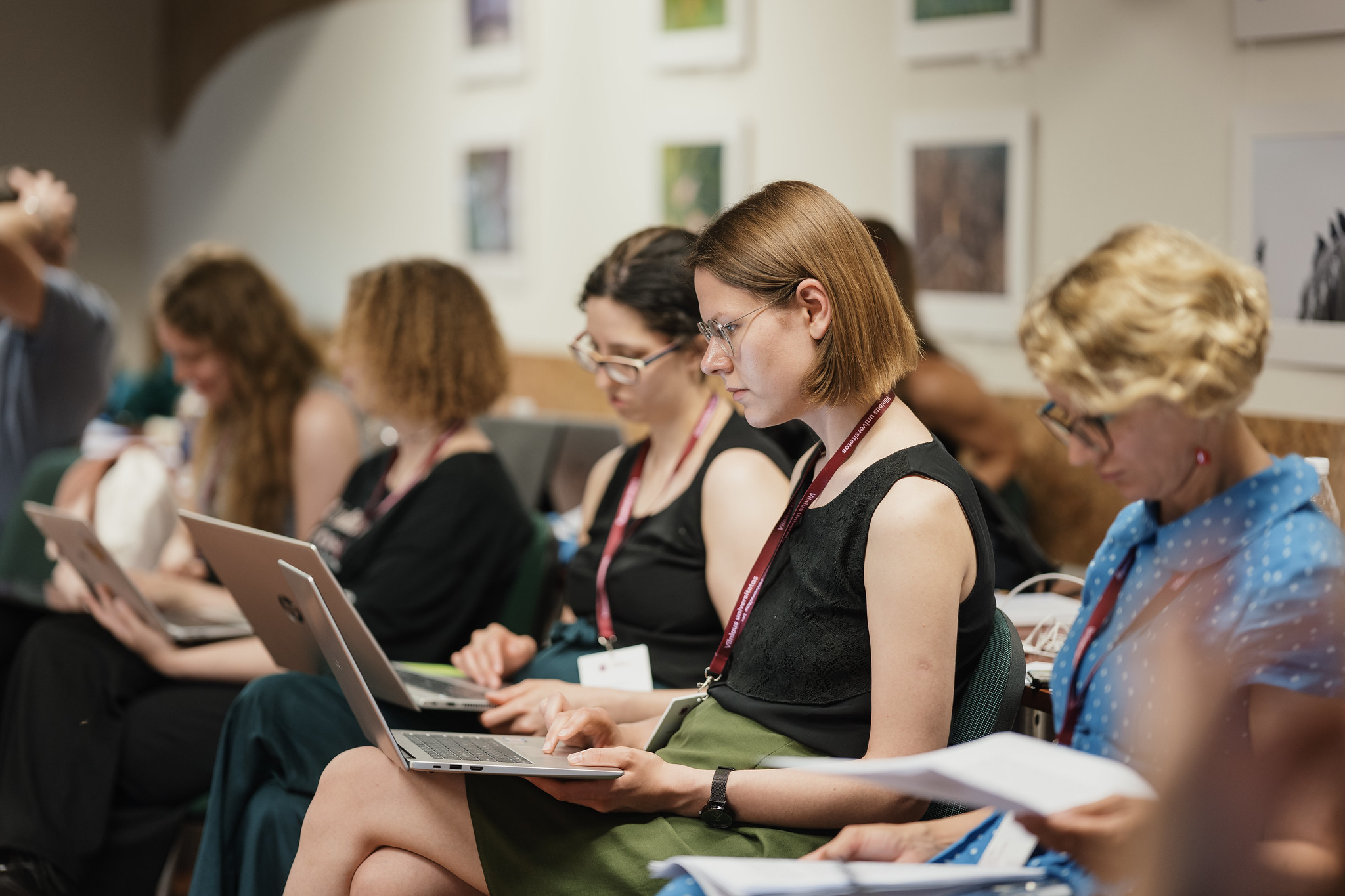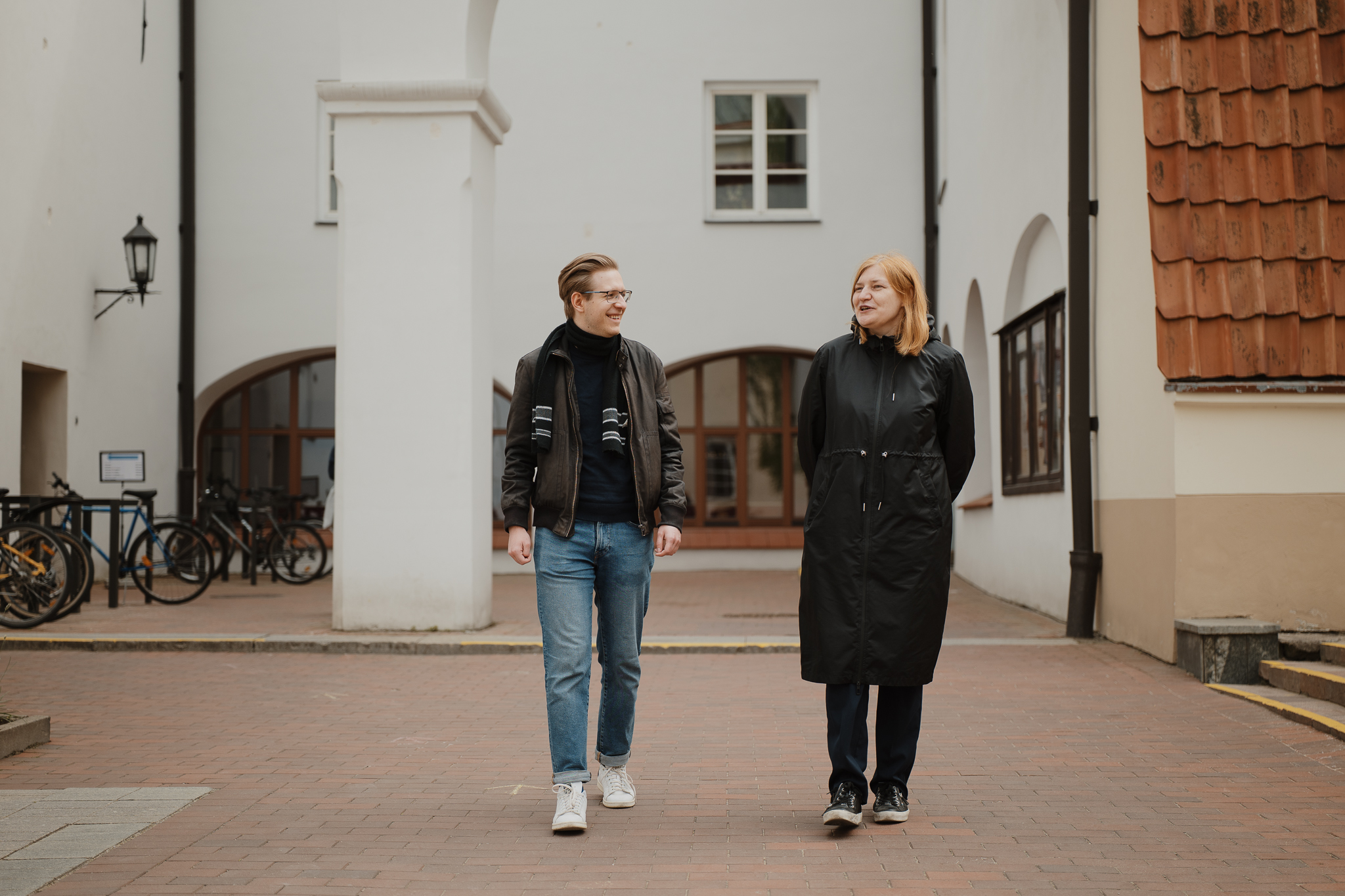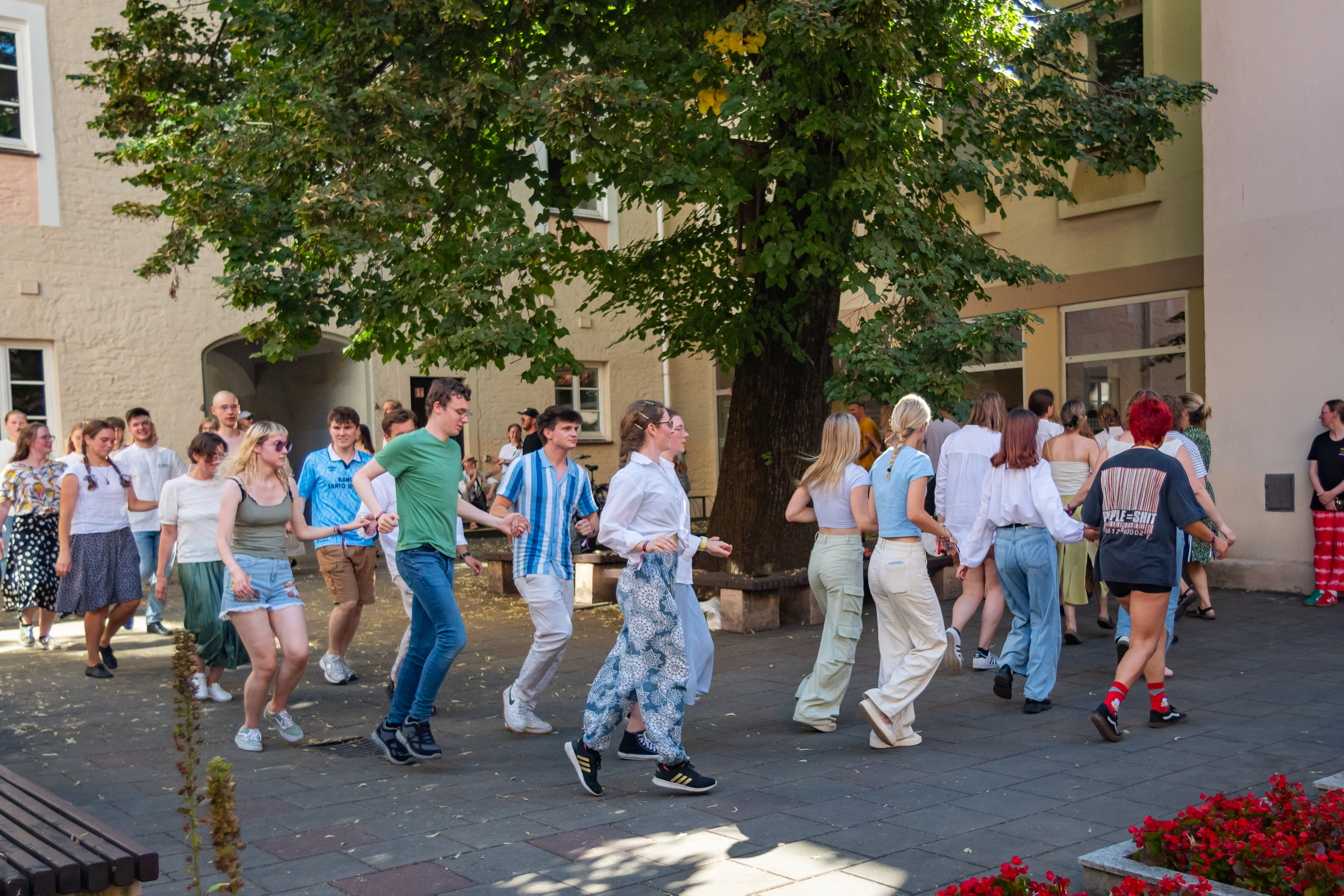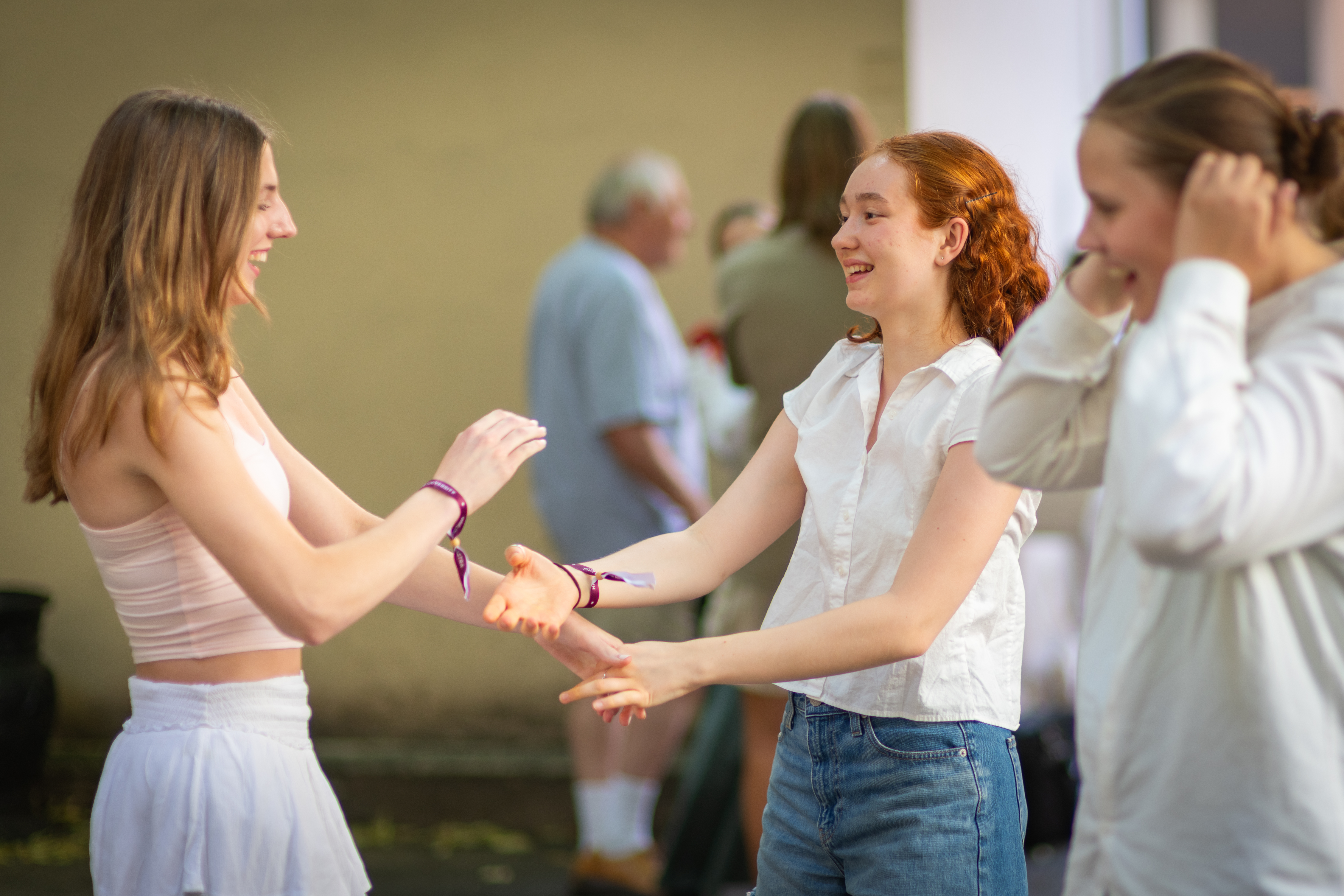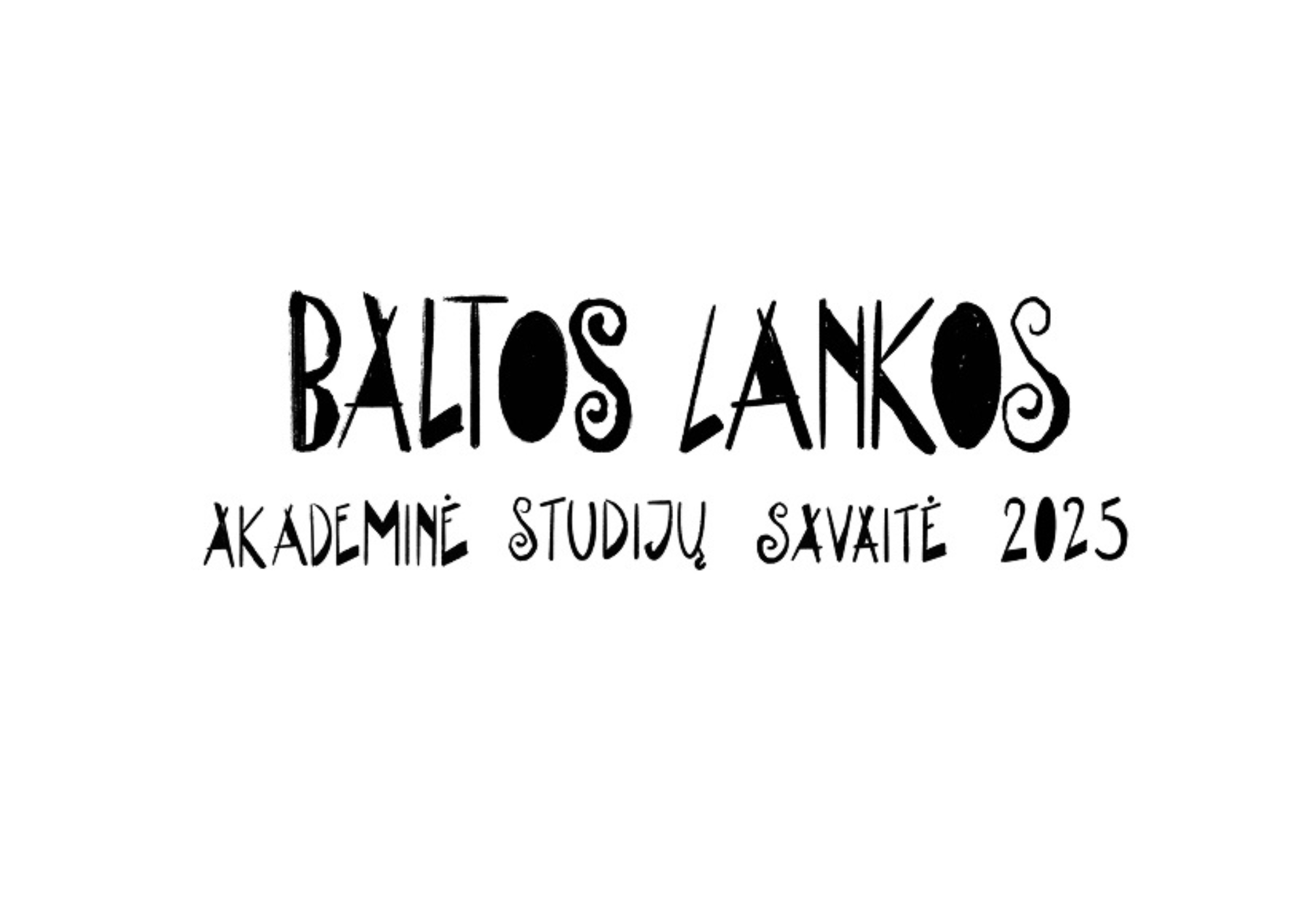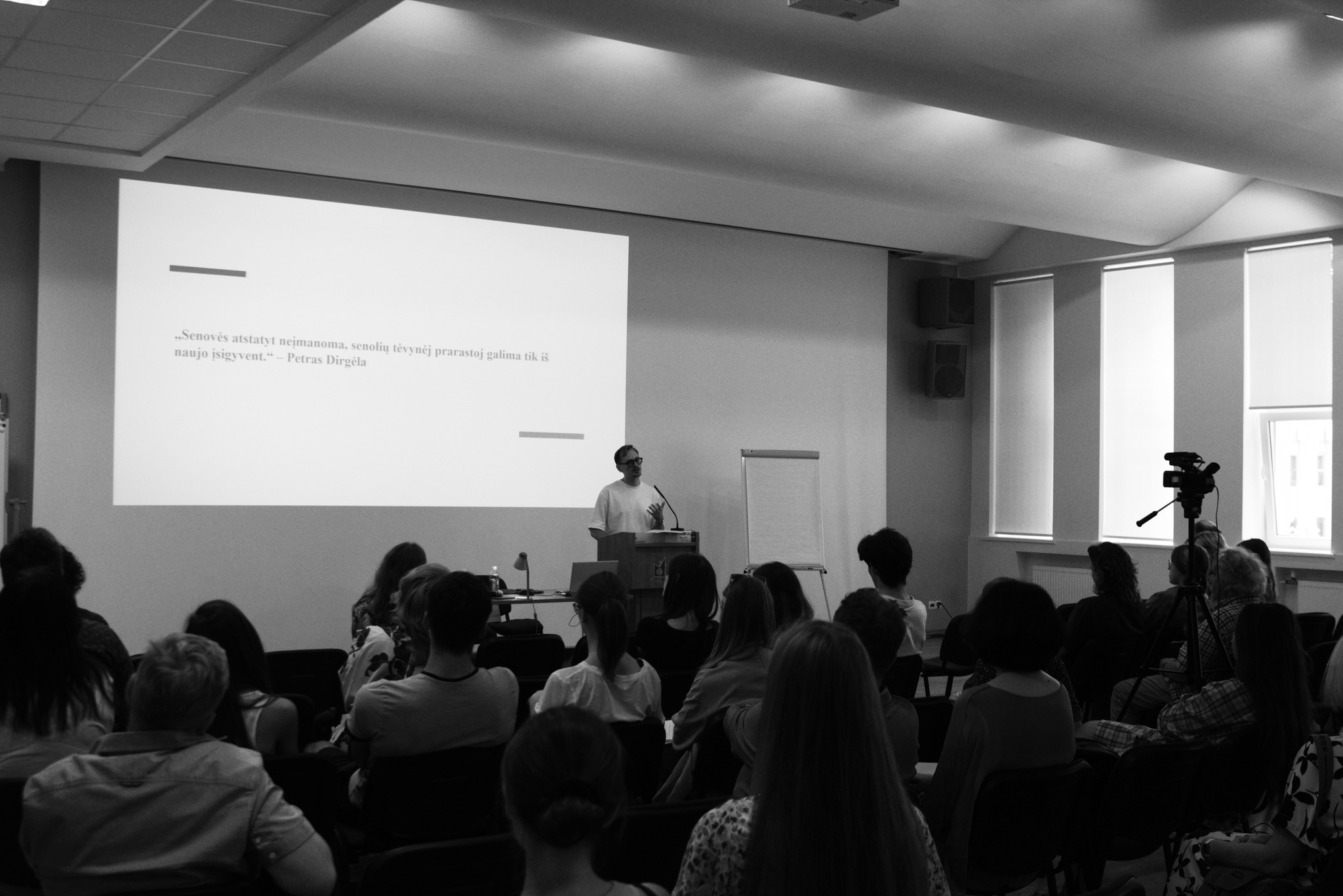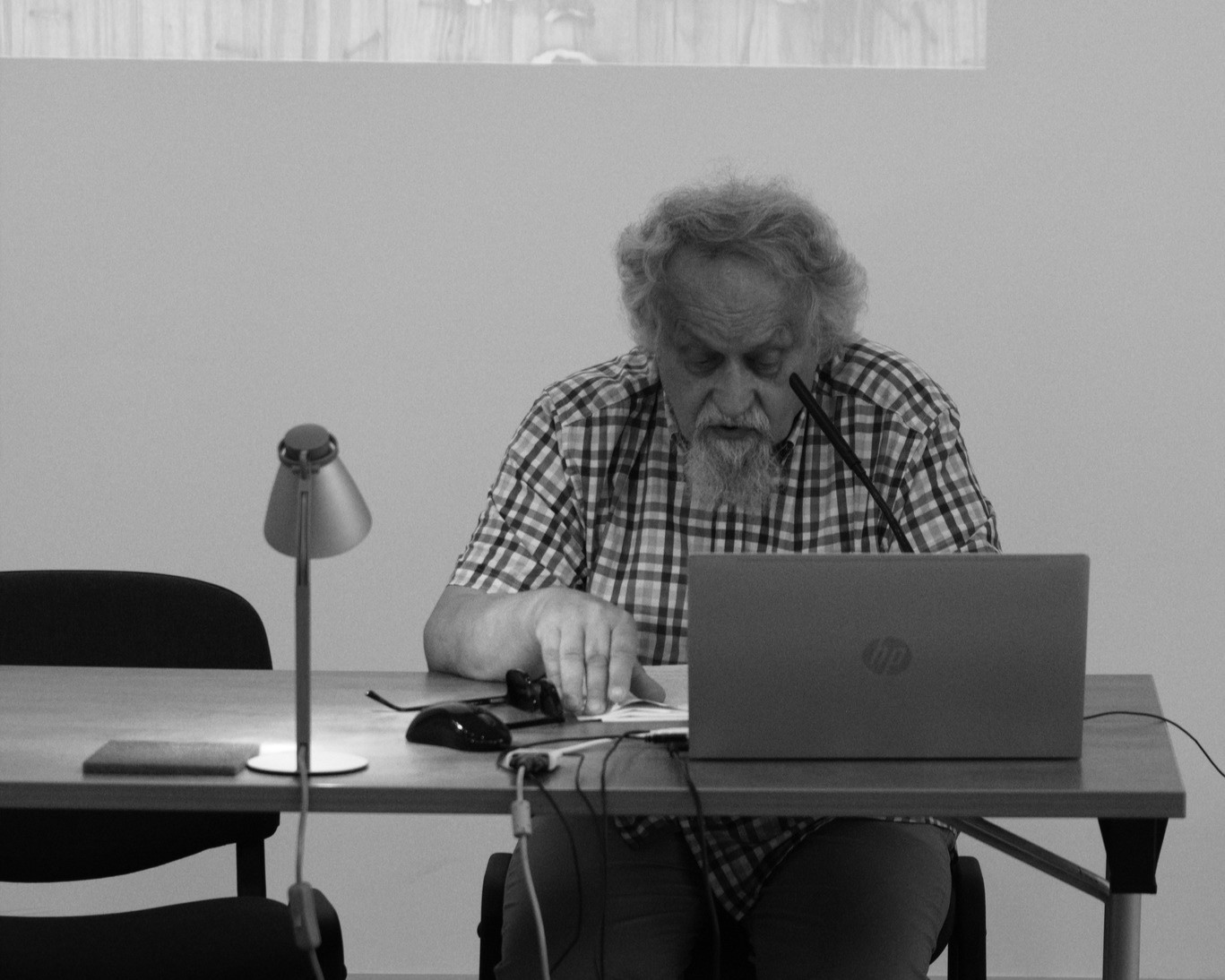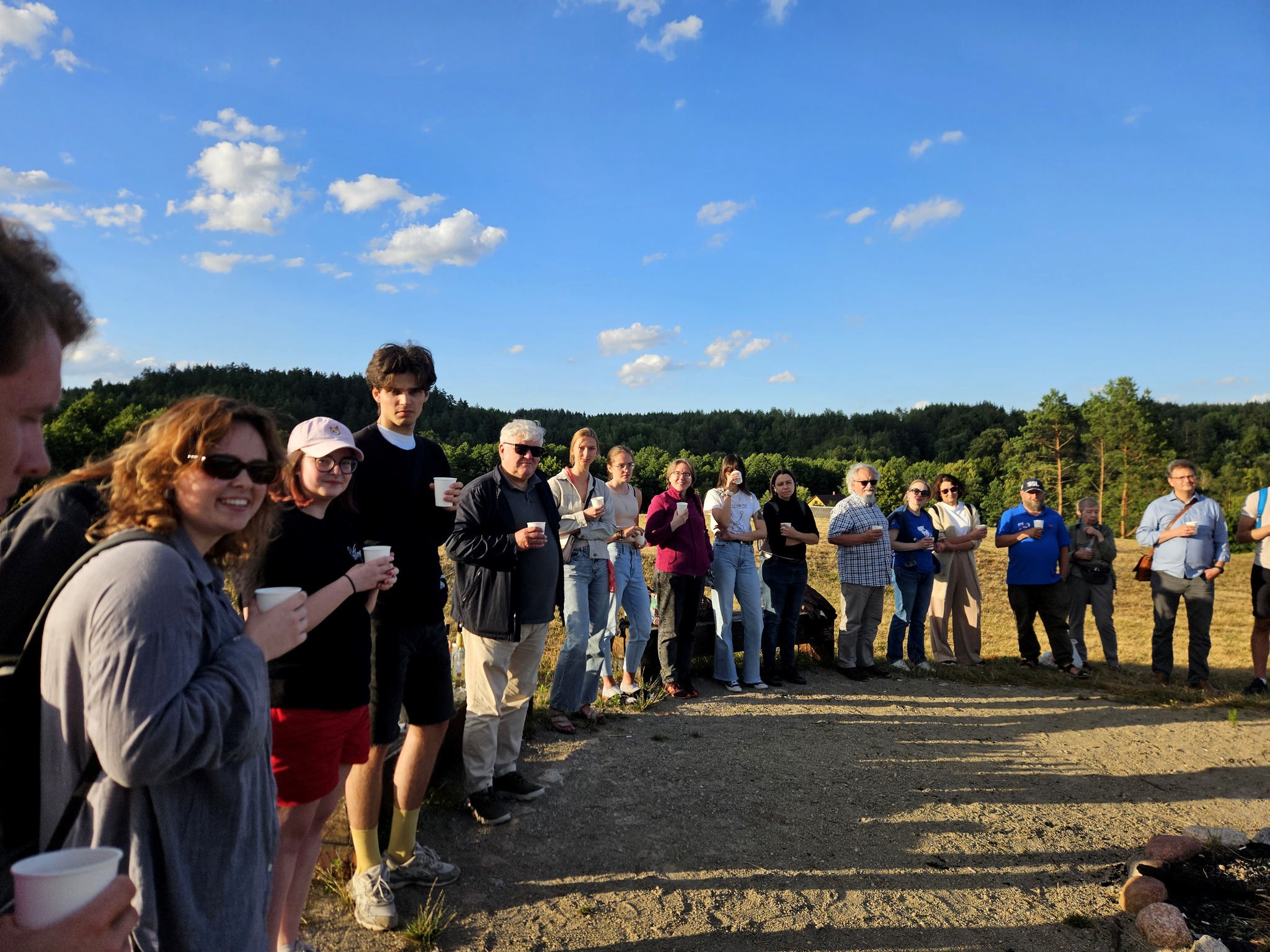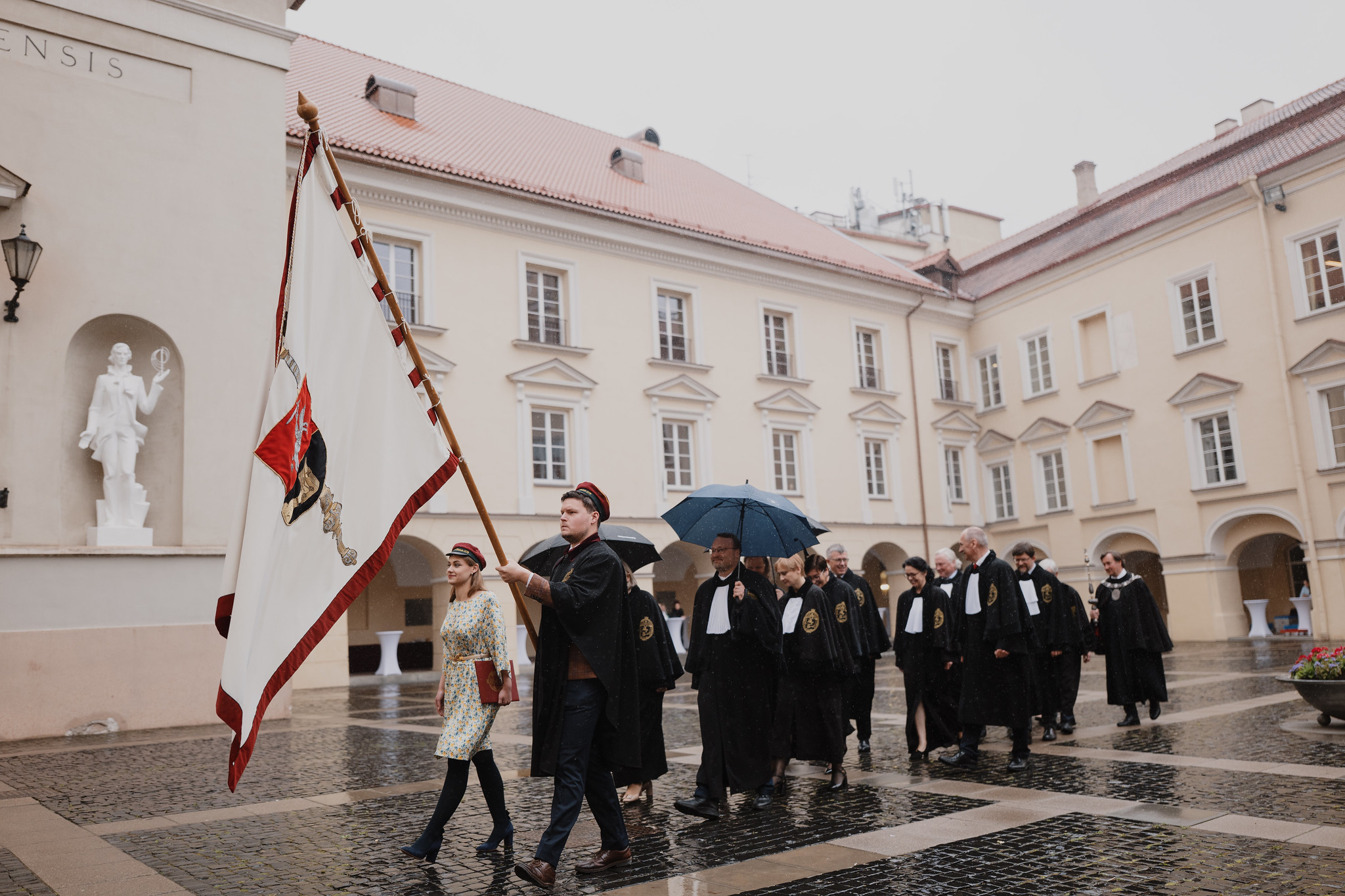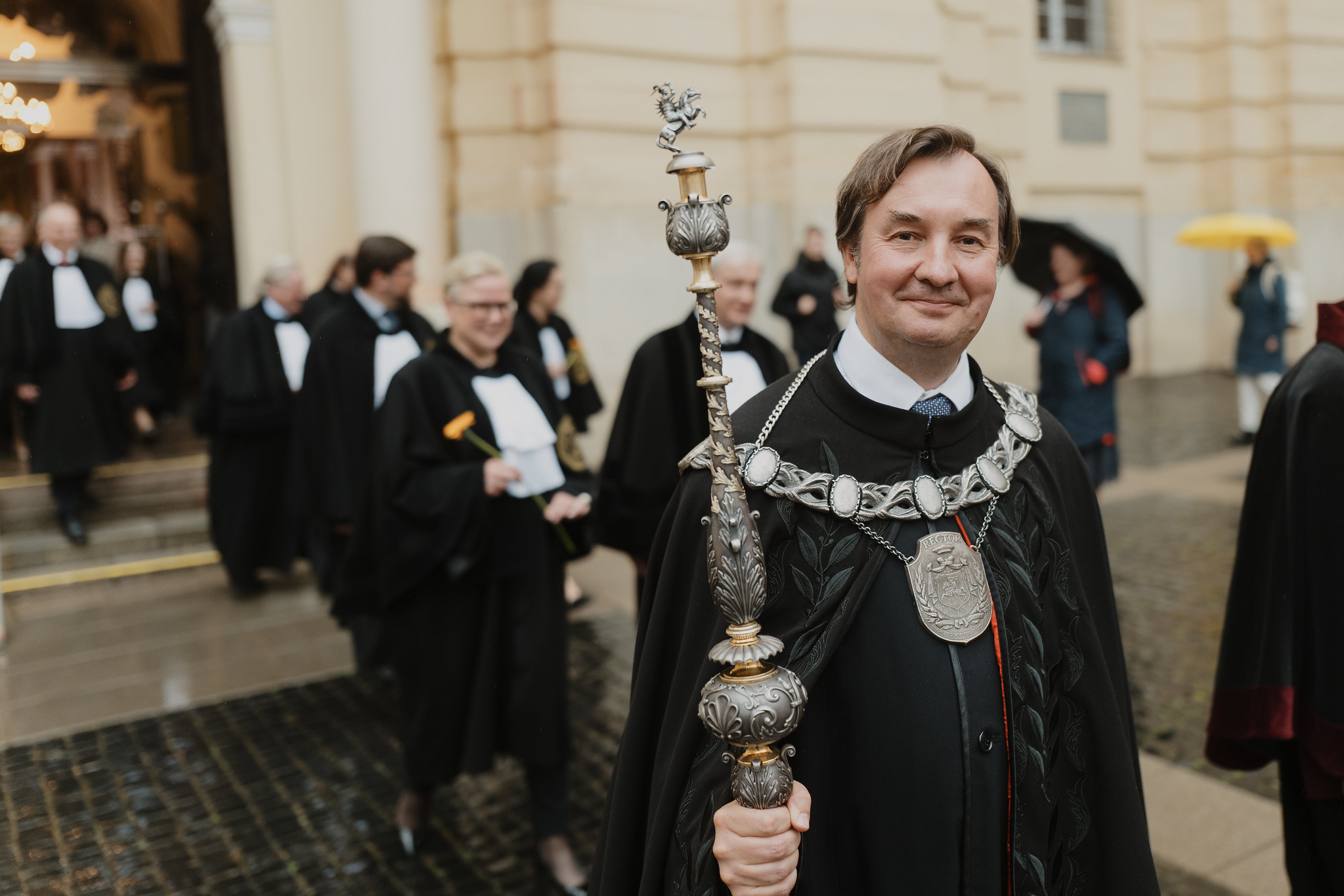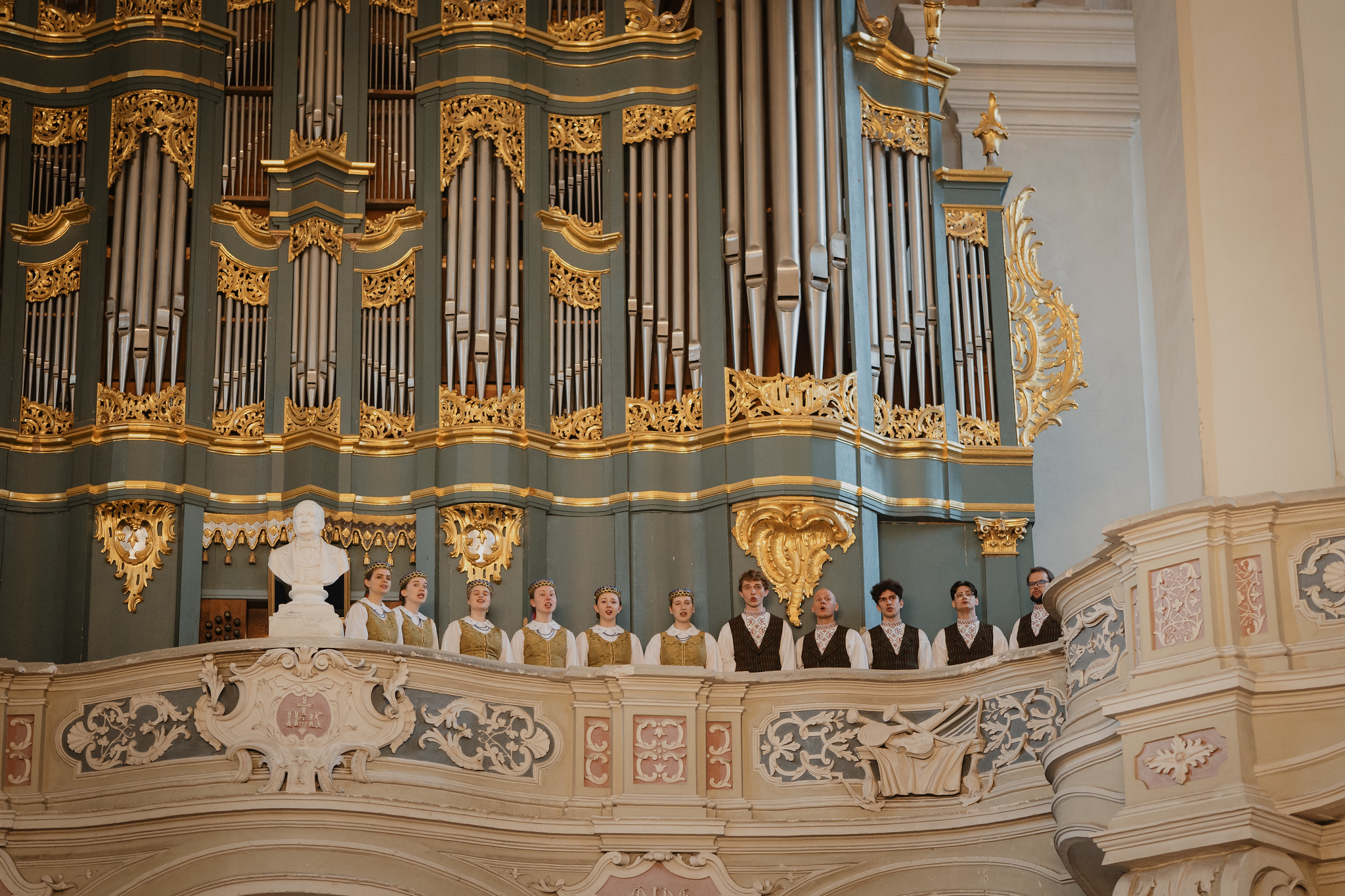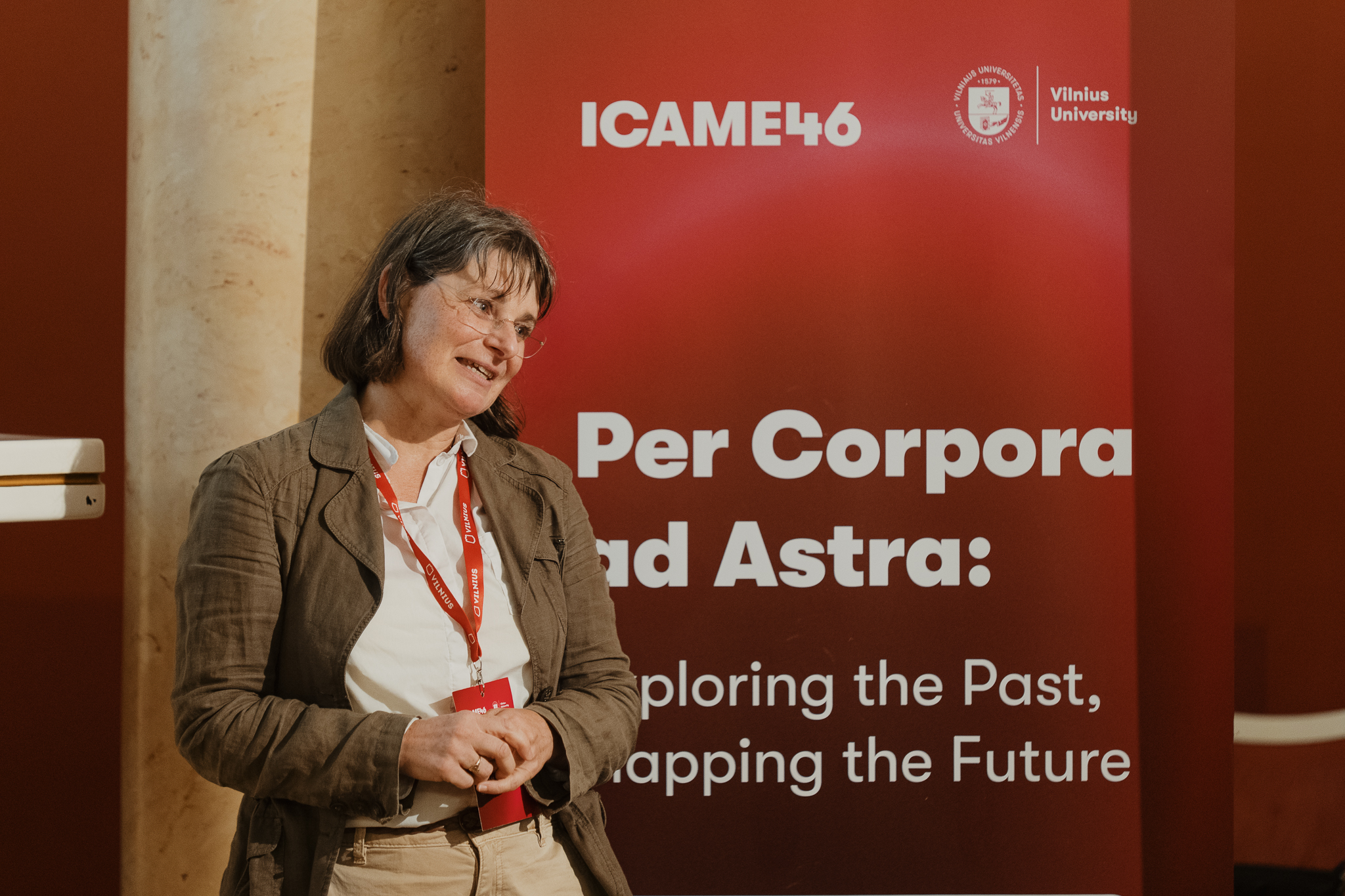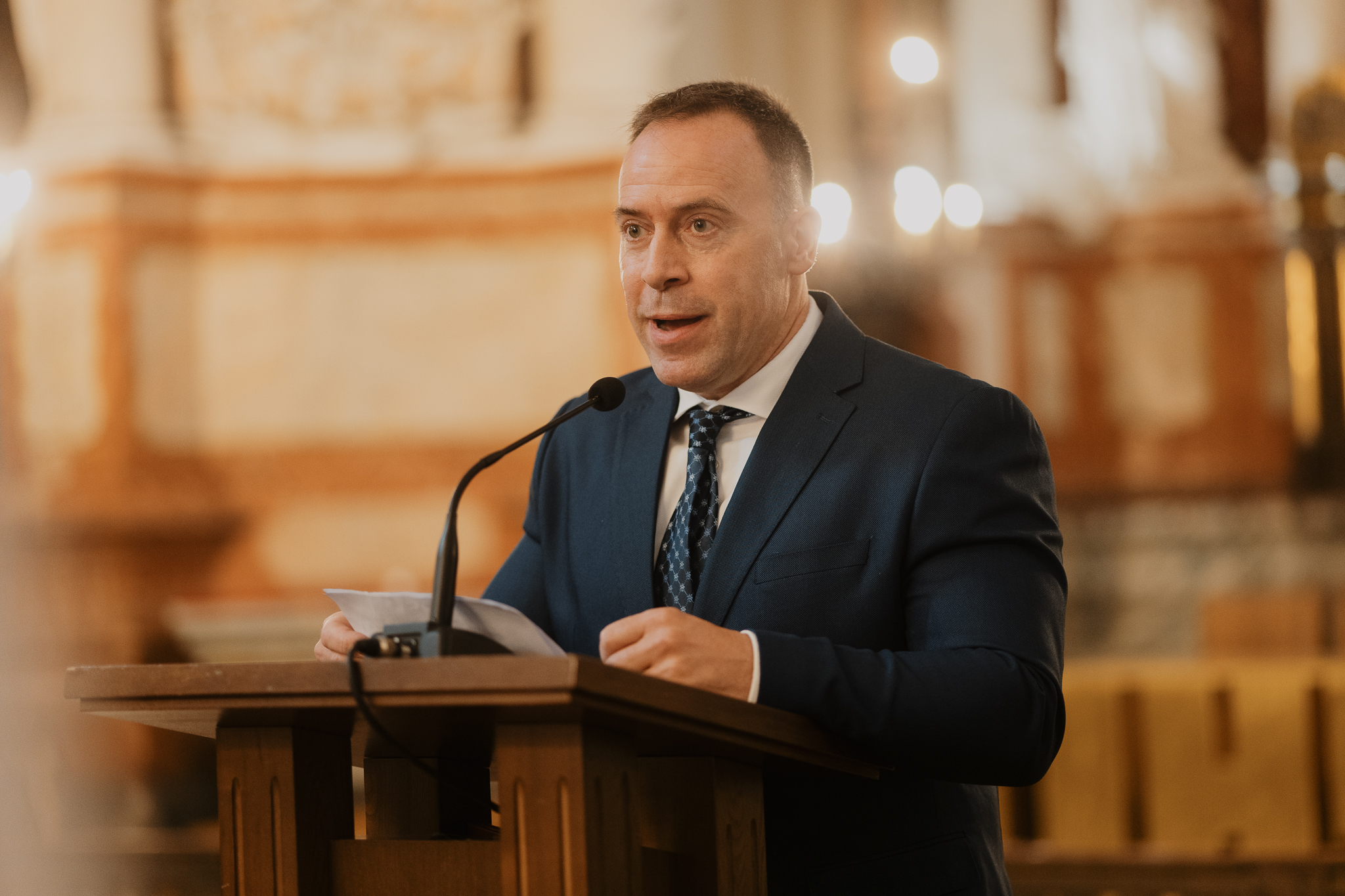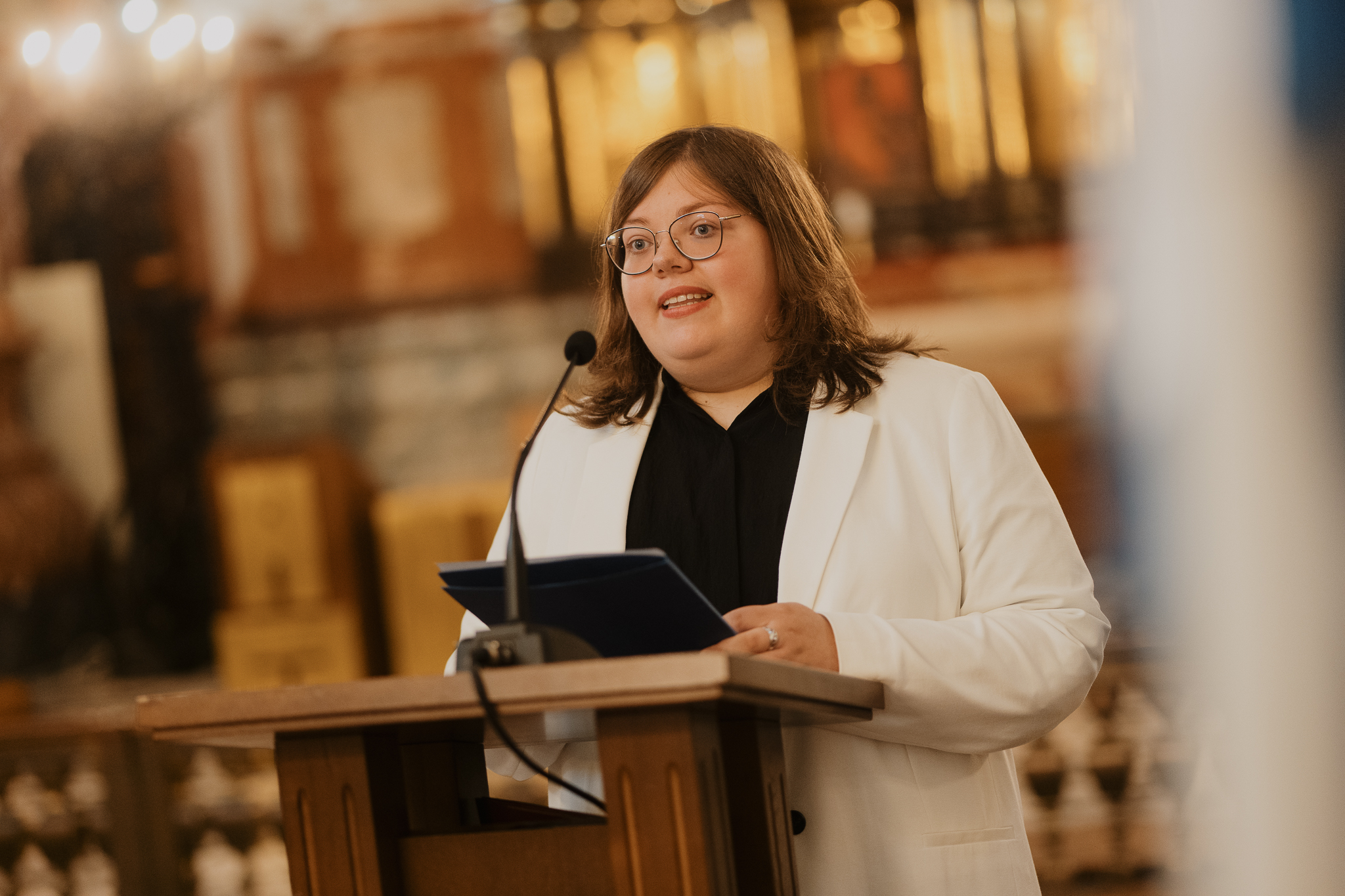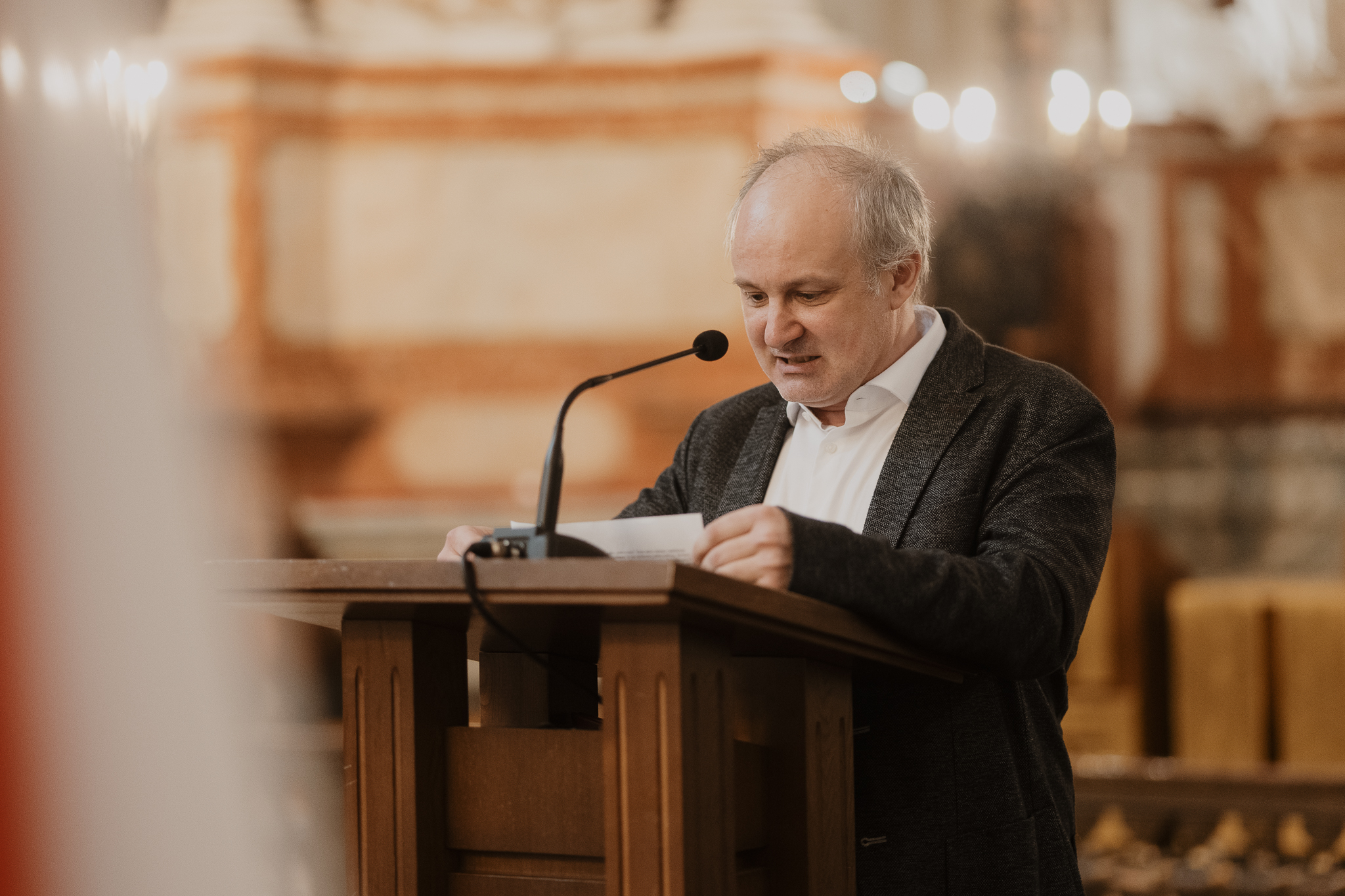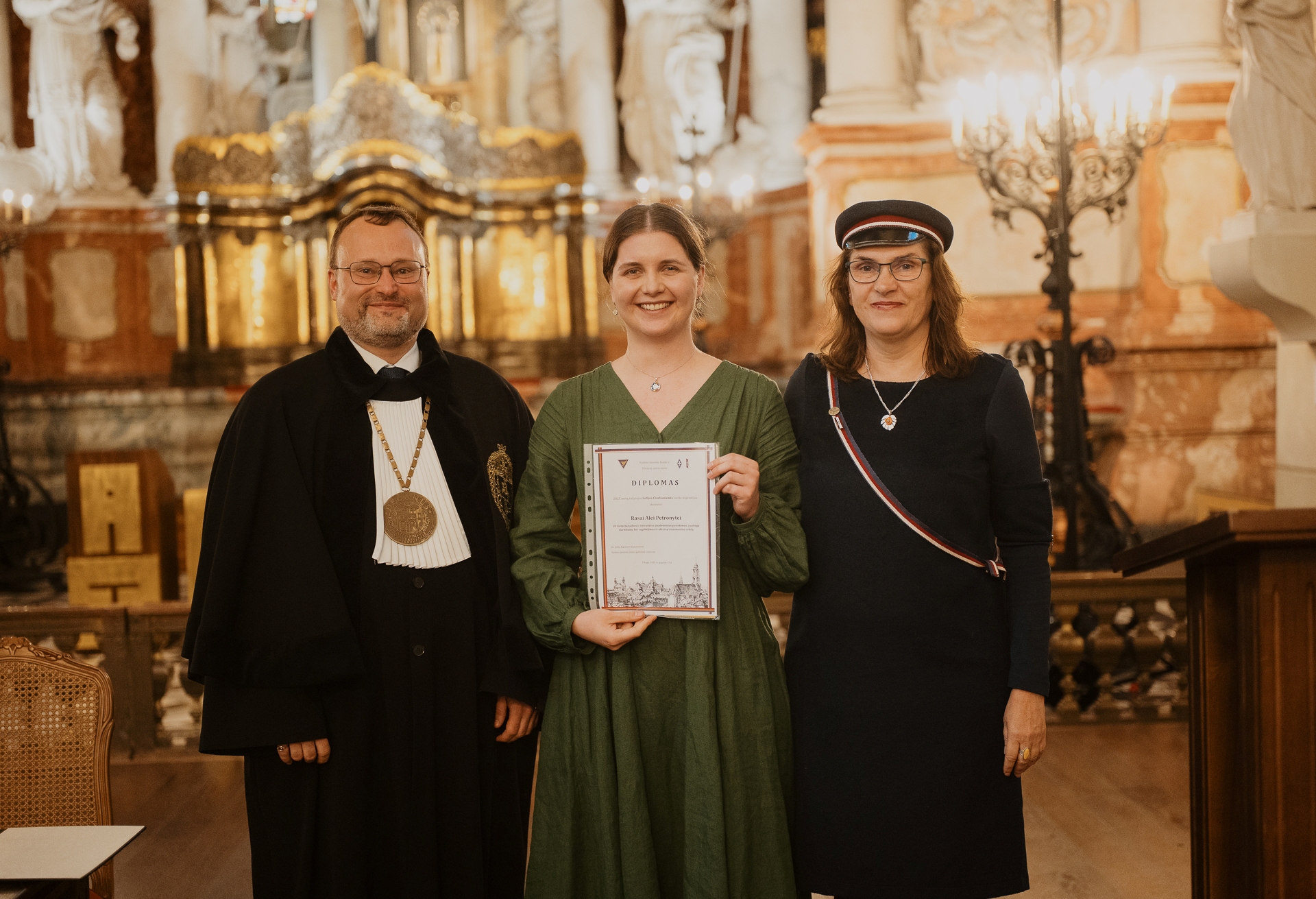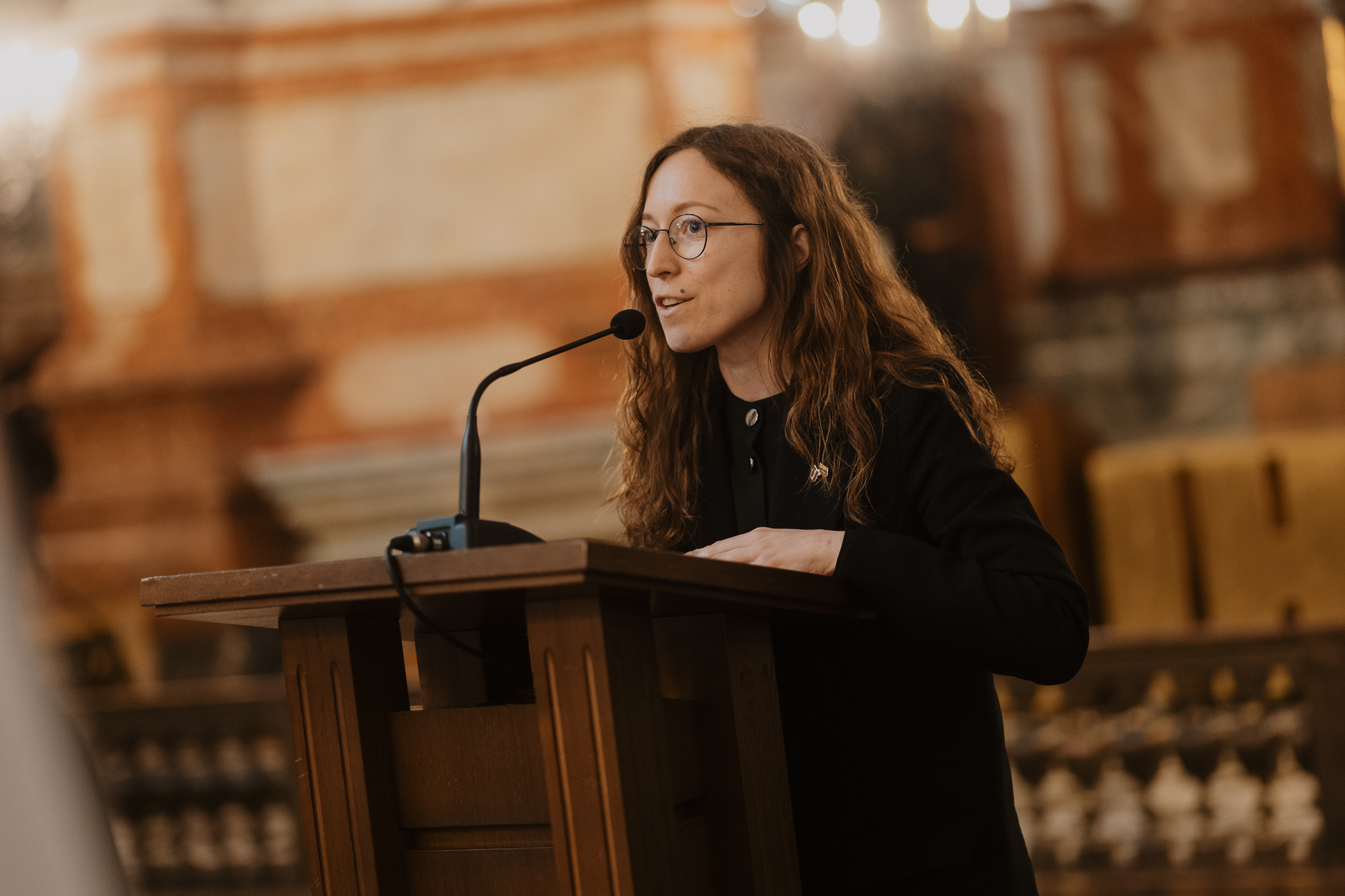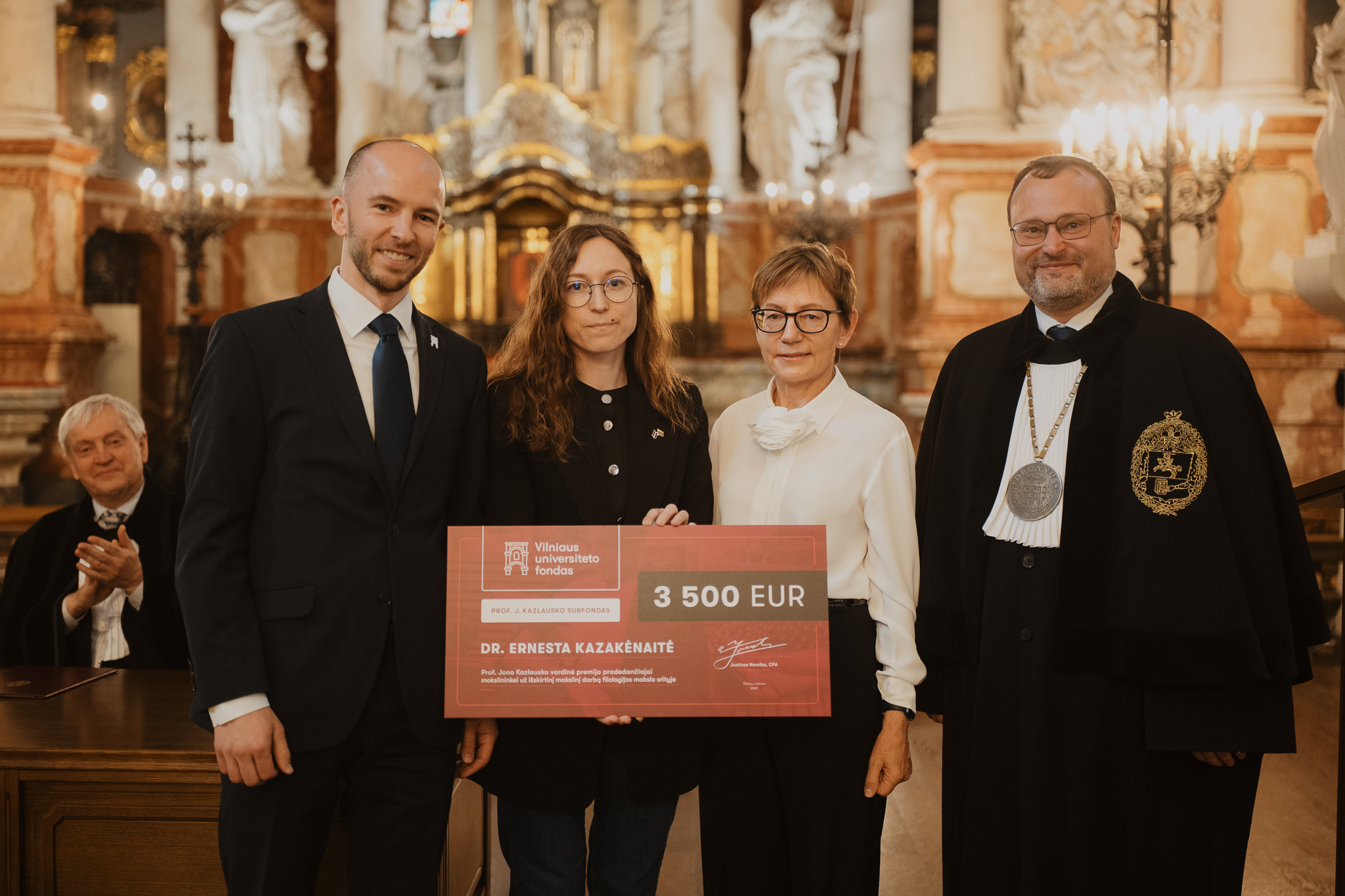VU mokslų daktarė E. Kačkutė: kaip asmeninė patirtis virsta tyrimo objektu ir kas sieja lyčių studijas ir filologiją
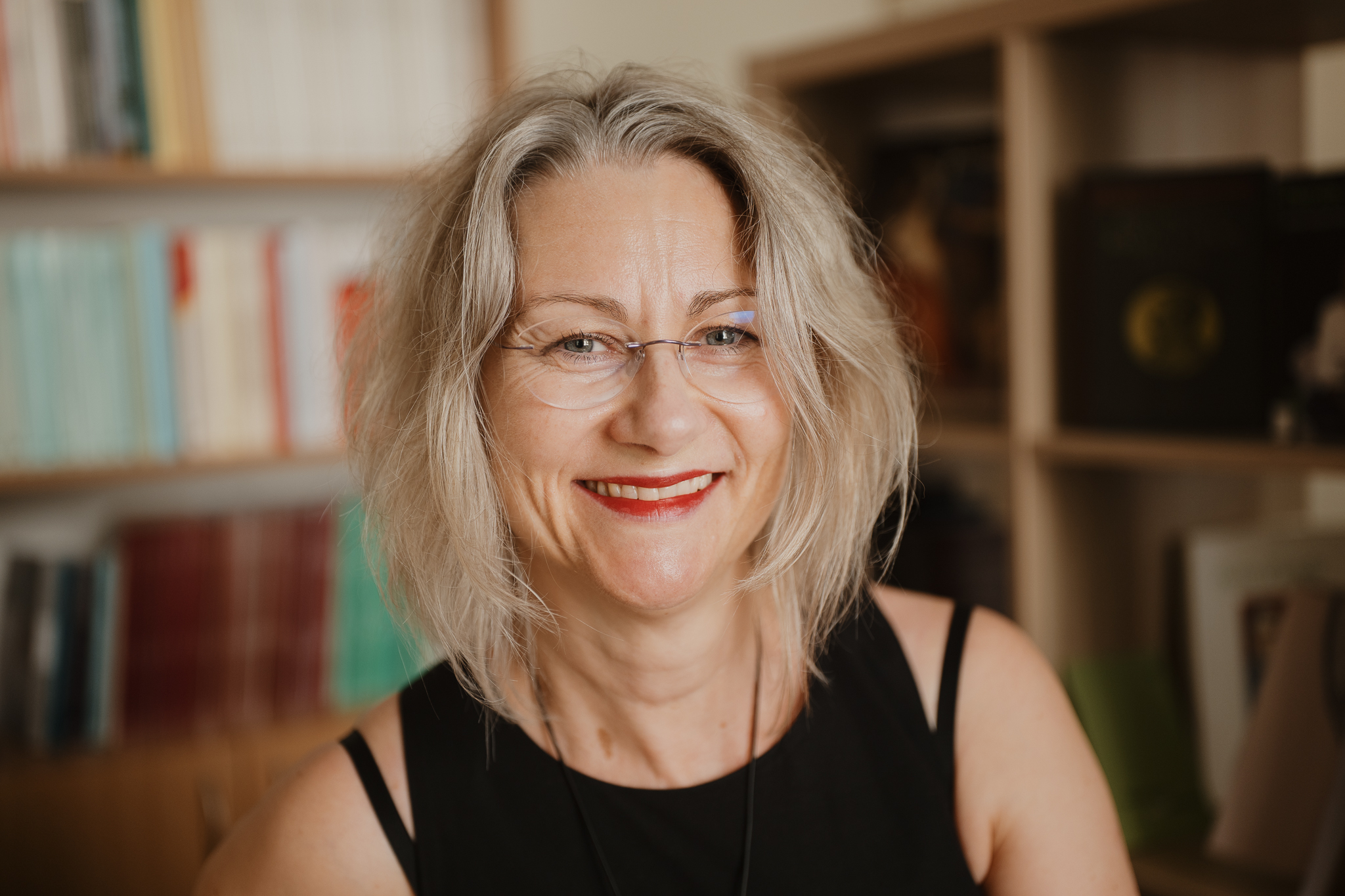
Vilniaus universiteto / Ugniaus Bagdonavičiaus nuotrauka
Vilniaus universiteto (VU) Filologijos fakultete dirbanti humanitarinių mokslų daktarė prof. Eglė Kačkutė nauja lyčių studijų kryptimi, motinystės studijomis, susidomėjo dėl asmeninių išgyvenimų. Tapusi mama mokslininkė sako išgyvenusi krizę, kuri paskatino į šią temą gilintis akademiškai. Europinio motinystės tyrimų tinklo „Mothernet“ koordinatorė, moterų literatūrai skirto Oksfordo universiteto žurnalo „Contemporary Women‘s Writing“ specialaus numerio „Motherhood, Mobility, Migration“ sudarytoja, monografijos ir daugelio mokslinių straipsnių tapatybės, motinystės, lyčių dinamikos klausimais autorė prof. E. Kačkutė sutiko papasakoti apie savo kelią į lyčių studijas ir atskleisti, kaip jos siejasi su filologija ir kokias problemas sprendžia.
„Kai pati susilaukiau sūnaus – išgyvenau didelę krizę. Sugriuvo absoliučiai visos mano gyvenimą ir asmenybę iki tol laikiusios sistemos. Supratau, kad tai negali būti mano asmeninė problema, kad tai yra kur kas didesnis sisteminis klausimas, kurį verta nuodugniai ištirti“, – teigia mokslininkė.
Kaip asmeninė patirtis tapo tyrimų objektu
Prof. E. Kačkutė daug metų tyrinėjo moterų literatūrą, lyčių reprezentacijas literatūroje, todėl motinystės tema mokslininkei visuomet atrodė svarbi, nors aiškiai ir nebuvo artikuliuota. O štai tapus mama ir patyrus didelį virsmą, suveikė tyrėjos refleksas. „Mano profesija yra tyrėja – ėmiau problemą tirti visomis man prieinamomis priemonėmis – ieškoti jungčių, atsakymų į klausimus kur, kas ir kodėl neveikia“, – sako pašnekovė. Kadangi mokslas grindžiamas kolektyviniu mąstymu, prof. E. Kačkutė netrukus atrado ir kitų tyrėjų, nagrinėjančių tą pačią problematiką.
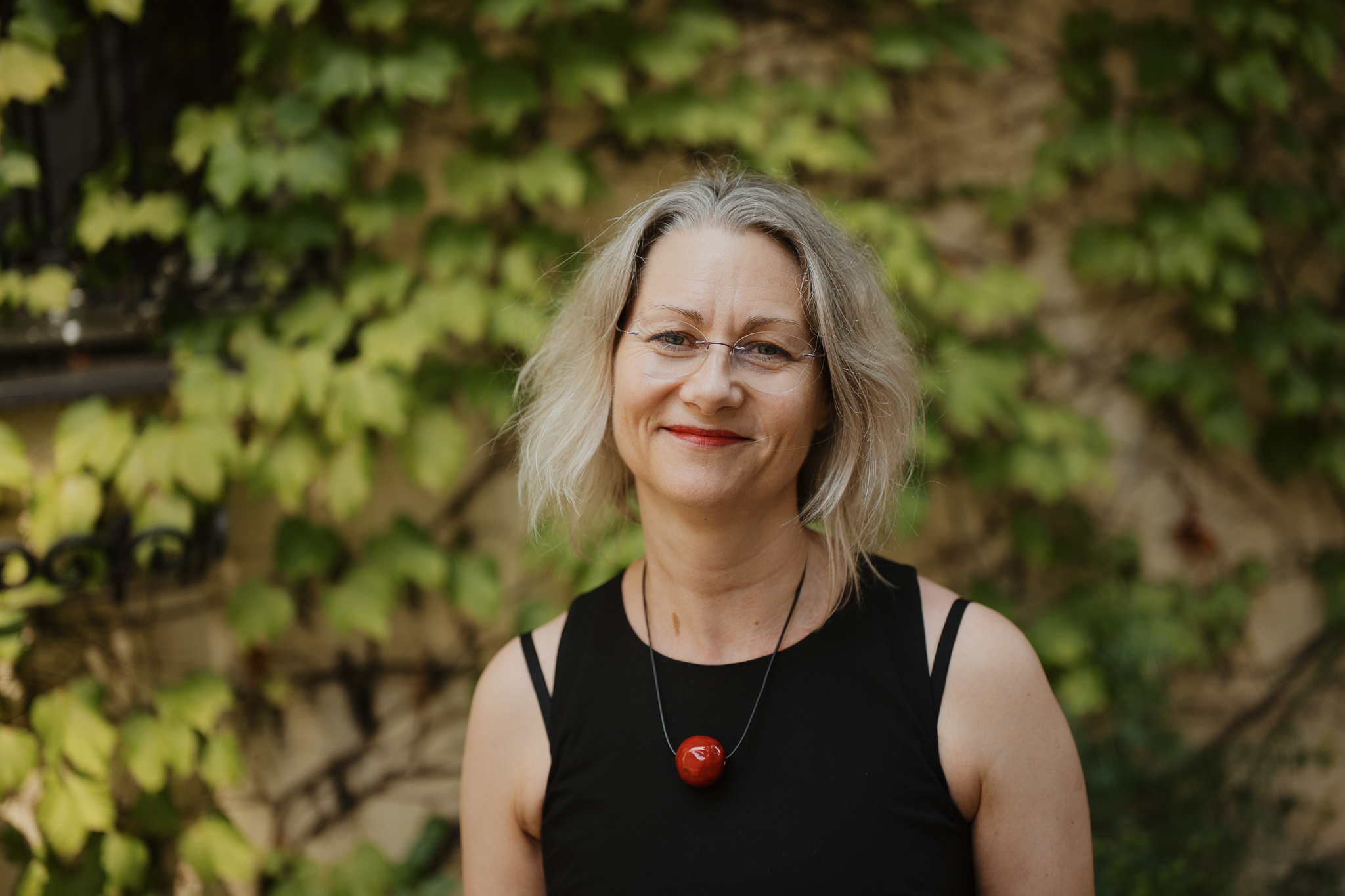
Vilniaus universiteto / Ugniaus Bagdonavičiaus nuotrauka
Paklausta apie konkrečius tyrimus, į kuriuos gilinasi šiuo metu, prof. E. Kačkutė sako rengianti dvi tyrimų finansavimo paraiškas. Vieną jų – medicininės humanitarikos srityje. Anot mokslininkės, toks tyrimas padėtų suprasti neišnešiotus kūdikius pagimdžiusių motinų poreikius. Kitas tyrimas susijęs su motinystės ir darbo derinimu.
„Rudenį prie mano vadovaujamos tyrimų grupės „Apmąstant motinystę“ / „ThinkingMotherhood“ prisijungs podoktorantūros stažuotoja. Ji atliks literatūros srities tyrimą, kurio metu aiškinsis kaip visuomenėje aptariami įstatymų projektai išlaisvina literatūrinę vaizduotę ir leidžia rastis motinystės poetikos kūriniams ir ką iš jų galima sužinoti apie reprodukcinę sveikatą, moterų poreikius ir meninio teksto kūrimo principus“, – pasakoja profesorė. Ji pripažįsta nekantriai laukianti kolegės ir būsimų mokslinių debatų. Tiesa, tai ne visi darbai: „Mothernet“ tyrimų, kuriuos koordinuoja prof. E. Kačkutė, narių dar laukia netradicinių gimdymo praktikų tyrimas (projekto vadovė dr. Ieva Bisigirskaitė, dalyvės – gydytoja akušerė-ginekologė Živilė Sabonytė-Balšaitienė ir mokslo darbuotoja Ugnė Gudžinskaitė), o kitais mokslo metais ji pati jau norėtų imtis seniai planuojamos monografijos.
Vis dėlto svarbiausiu darbu mokslininkė vadina šiuo metu naujai kuriamą Lyčių studijų bakalauro programą ir pabrėžia, kad motinystė tėra vienas iš daugelio vaidmenų, susijusių su socialine ir kultūrine lyčių dinamika, o lyčių diskursai yra neatsiejami nuo politikos ir vertybinių nuostatų: „Dabar, kai pasaulyje vyksta tokie dideli vyksmai ir iš naujo deramasi dėl galios santykių, ši tema kaip niekada aktuali“.
Sąsajos su filologija ir „MotherNet“ projektas
Yra tokių, kurie nustemba, kad būtent VU Filologijos fakulteto mokslininkių darbai susiję su lyčių studijomis ir motinystės tema, tad pasiteiravome pačios prof. E. Kačkutės, kaip ji paaiškintų šią sąsają. Anot profesorės, lyčių studijos literatūrologijos, sociolingvistikos ir lingvistikos kontekste yra suvokiamos kaip kritinė prieiga, analizės įrankis, kuris leidžia filologiniuose reiškiniuose atskleisti socialinę ir kultūrinę lyčių dimensiją kaip tam tikrą sistemą, kuri yra užkoduota ir perduodama per kalbos įrankius – žodžius, gramatines formas, diskurso strategijas, ženklų sistemą, estetinius literatūros sprendimus, menines strategijas.
„Lyčių ir su lytimis susijusi nuostatų sistema tampa tyrimo objektu, o tekstai, diskursai, kalba (arba jų junginys) yra analizės duomenys, per kuriuos ne tik lytys, bet ir lytys jų kontekstuose perprantamos, permąstomos ir kritiškai tyrinėjamos. Lyčių, feministinė prieiga gali pasiūlyti įrankių, kaip tą sistemą atpažinti, dekonstruoti, kritiškai analizuoti“, – aiškina tyrėja.
Kalbėdama apie kuruojamą „MotherNet“ projektą, mokslininkė pasakoja, kad šio Europos Sąjungos (ES) finansuojamo tyrimo tikslas – suburti stipriausių motinystę tyrinėjančių mokslininkų tinklą Europoje. Nors projektas pasibaigė, ir tinklas sėkmingai sukurtas, jo nariai ir toliau tyrinėja sudėtingą motinystės reiškinį.
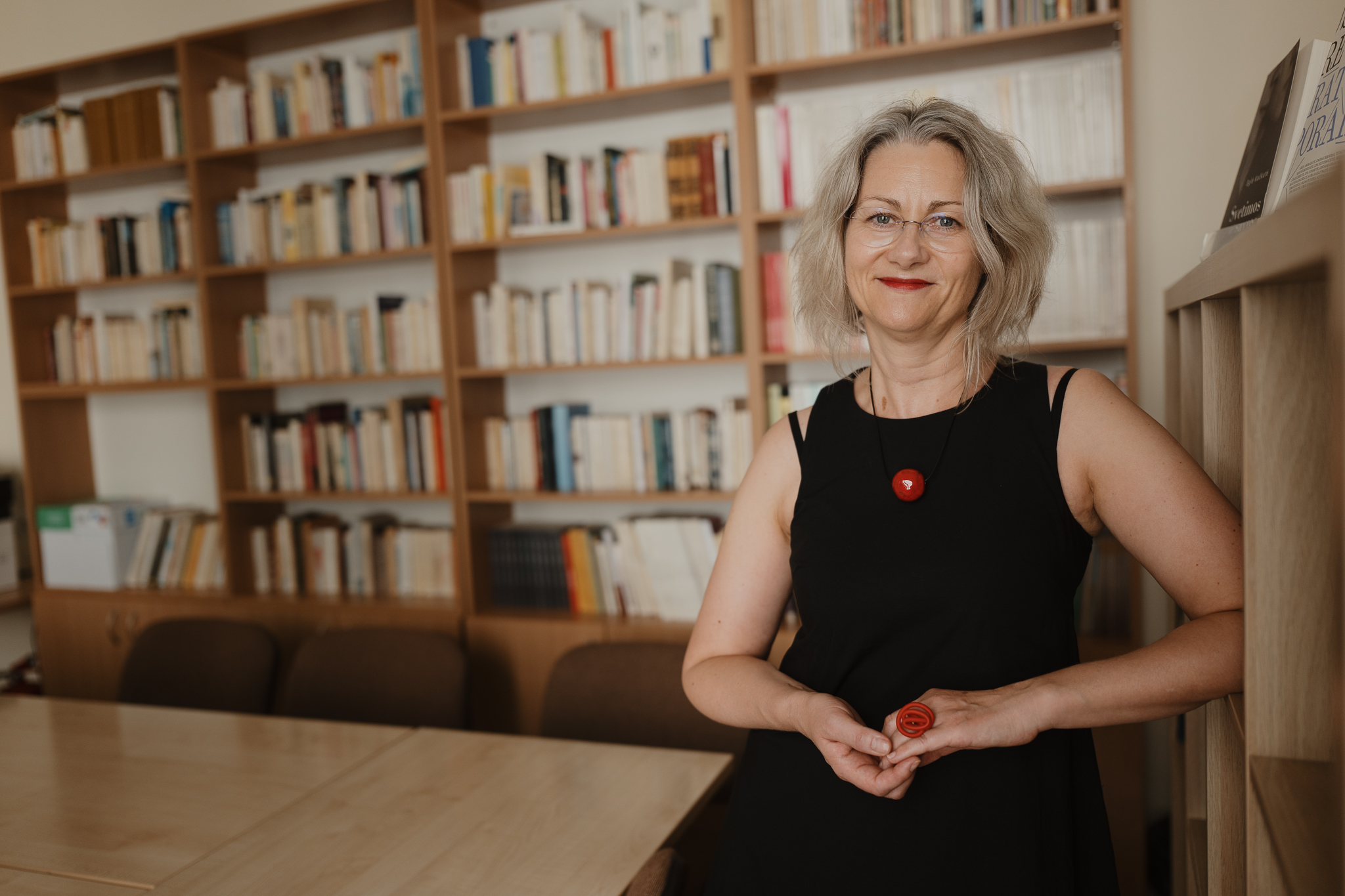
Vilniaus universiteto / Ugniaus Bagdonavičiaus nuotrauka
„Svarbiausia problema, kurią mokslininkės/ai sprendžia, yra bloga demografinė situacija Europoje, o tai yra motinystės krizė. Tinkle mėginame suvokti šios krizės priežastis ir kurti problemos sprendimo būdus. Kadangi motinystė didžiausia dalimi yra moterų reikalas, tai ir žiūrime į ją iš feministinės perspektyvos. Kaip pagerinti su moterų reprodukcine sveikata susijusias paslaugas, kaip padėti sėkmingai suderinti apmokamą darbą su vaikų auginimu, kokią nacionalinę ir tarptautinę politiką kurti, kad atsirastų vietos vaikų auginimui, priežiūrai, kokius ekonominius sprendimus priimti, kad ES piliečiai galėtų išeiti į pensiją“, – pagrindinius klausimus vardija pašnekovė, pabrėžianti ir kultūros svarbą.
Pasak prof. E. Kačkutės, kultūros – televizijos, kino, literatūros, vaizduojamųjų menų svarba šiame problemų lauke yra didžiulė. Be to, ji teigia, kad oficialiai moterys įstatymų kūrime ir sprendimų priėmime dalyvauja dar gana neseniai – vos daugiau nei šimtmetį, todėl valstybių, visuomenės, paslaugų, medicinos bei kultūrinio turinio kūrimo sistemos buvo formuojamos vadovaujantis vaizduote, kurioje stinga rūpesčio etikos ir tvarumo.
Todėl ji siūlo tokias sistemas vertinti kritiškai, jas permąstyti, kad išlaikytumėme gyvenimui rastis ir augti reikalingą terpę. VU Filologijos fakulteto mokslininkė pabrėžia, jog kalba ne tik apie klimatą, bet ir apie kultūrines, socialines sistemas bei vidaus ir užsienio politiką. Profesorė atkreipia dėmesį, kad nesunku pastebėti, kaip, anot jos, niekinančiai autokratiniai ir imperialistiniai režimai elgiasi su motinomis, gimdymu ir gyvybe.
Apžvelgdama „MotherNet“ tinklo rezultatus, tyrėja džiaugiasi, kad pavyko suburti tyrėjų grupę, sutelkti jų žinojimą ir tyrimų įgūdžius, taip pat identifikuoti kelis probleminius laukus: reprodukciniai moterų kūnai ir tai, kaip su jais elgiamas (į tai įeina ir psichinė motinų sveikata); ideologinės motinystės konstrukcijos, įteisinančios vienų moterų motinystę ir rūpesčio darbą ir nuvertinančios kitų; motinoms priskiriamos funkcijos ir nepakeliamai dideli lūkesčiai, motinų dalyvavimas darbo rinkoje. Apie tai rašoma „MotherNet“ tinklo publikacijose, kurias galima rasti projekto „MotherNet“ svetainėje. „Visose minėtose srityse reikalingos intervencijos, kurias ateities tyrimais tikimės pasiūlyti“, – tiki tyrėja.

